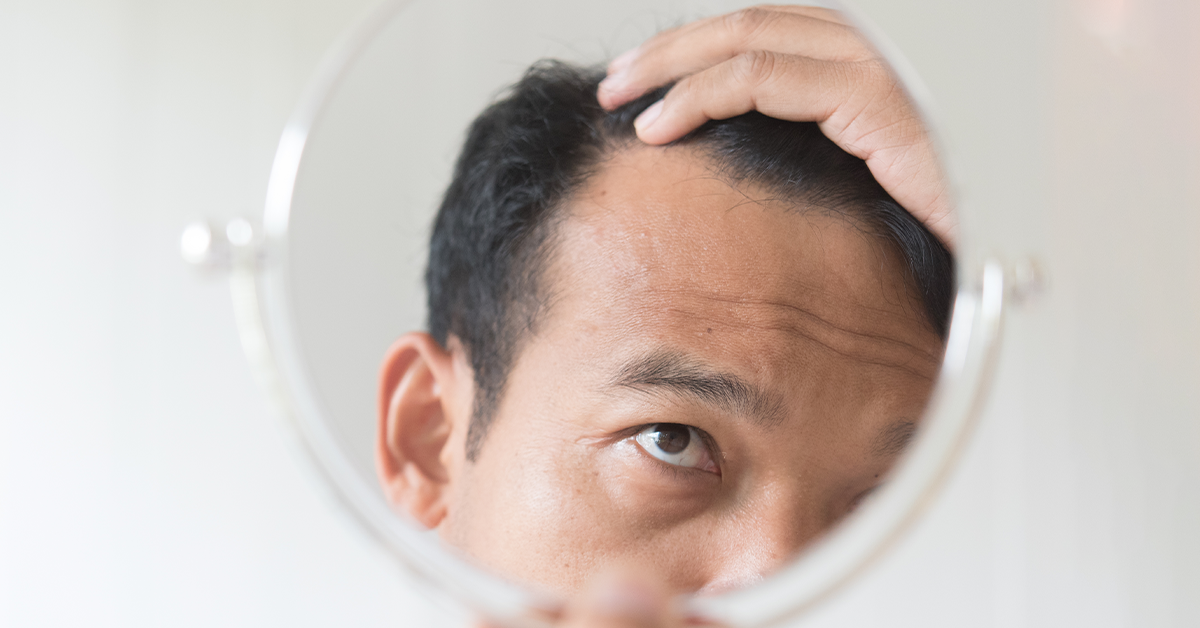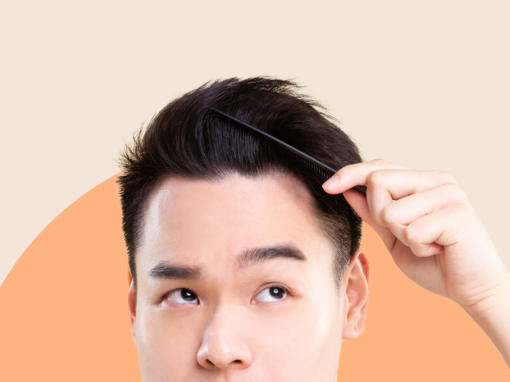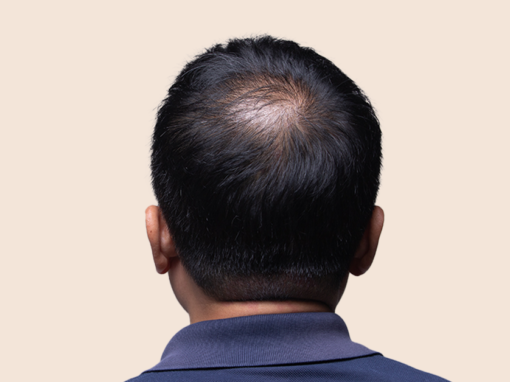Telogen effluvium is a condition where hair fall occurs excessively due to hair follicles entering the resting phase too early. It usually affects the scalp but can also affect facial or body hair. It can occur in both men and women. Although it doesn’t cause permanent baldness, telogen effluvium can be distressing for those experiencing it. This article will share with you the symptoms, causes, and treatment options for telogen effluvium.
Overview
One common cause of hair loss is telogen effluvium, which occurs after sudden and drastic changes in the body, like childbirth, severe illness, or certain medications. It can either be acute/short-term or chronic/long-term. Chronic telogen effluvium is a more persistent form of telogen effluvium that can last for months or years and is often caused by psychological stress or an underlying medical condition.
Let’s discuss the causes, symptoms, and telogen effluvium treatment options.
Symptoms of telogen effluvium
Telogen effluvium is hair loss caused by the premature shedding of resting hairs. Common telogen effluvium symptoms include:
Thinning of the scalp hair:
This may give an overall thinning appearance to the scalp as individual hairs become thinner and more sparse in affected areas.
Increased shedding of hair:
Telogen effluvium is characterized by a sudden increase in shedding, resulting in more hair falling out than usual when brushing or washing the hair.
Patchy hair loss:
In some cases, telogen effluvium can cause patchy bald spots throughout the scalp where hair has been lost due to premature shedding.
Reduced regrowth signs:
One of the tell-tale signs of telogen effluvium is reduced regrowth signs, such as fewer new hairs appearing on the scalp or decreased thickness of existing hairs.
Causes of telogen effluvium
There are many potential telogen effluvium causes, including:
Drastic weight loss:
Rapid or extreme weight loss can cause the body to enter a state of shock, triggering an increase in shedding.
Severe illness or stress:
Stress and severe illnesses such as cancer can trigger excessive hair shedding by overloading the body’s systems.
Medication side effects:
Certain medications, like the ones used in treating high blood pressure or depression, can interfere with normal hair growth cycles and cause increased shedding.
Hormonal changes due to pregnancy or menopause:
Changes in hormone levels may affect how quickly your hair grows or how long it stays in the resting telogen phase.
Vitamin deficiencies and malnutrition:
Insufficient essential vitamins and minerals can interfere with normal hair growth cycles, increasing shedding.
Medical conditions such as thyroid disorders:
Conditions like hypothyroidism can disrupt the balance of hormones, resulting in excess shedding of hair.
Treatments for telogen effluvium
Treatment for telogen effluvium usually involves correcting any underlying medical conditions. Here are some hair loss treatments caused by telogen effluvium:
Hormonal therapy:
For women experiencing hair loss due to hormonal changes such as pregnancy or menopause, healthcare professionals may recommend hormone replacement therapy to restore balance and reduce shedding.
Medications:
Healthcare professionals may prescribe certain medications that have been shown to help stop excessive shedding and promote new hair growth in cases of telogen effluvium.
Topical treatments:
Patients may benefit from topical treatments such as minoxidil, which can help regrow lost hair.
Hair replacement surgery:
In cases of severe hair loss, hair replacement surgery may be an option for patients looking to restore their original look and density of hair.
Conclusion
Telogen effluvium is a condition that can cause excessive shedding of the scalp hairs. It has many potential causes, including drastic weight loss, severe illnesses or stress, medication side effects, hormonal changes due to pregnancy/menopause, vitamin deficiencies and malnutrition, and medical conditions such as thyroid disorders. Ultimately, it is vital to consult with a healthcare professional or dermatologist to properly diagnose the cause of telogen effluvium and determine the best telogen effluvium recovery /course of treatment. With utmost care and attention, telogen effluvium regrowth signs can be increased.
FAQs related to telogen effluvium
How common is telogen effluvium?
Telogen effluvium is a relatively common condition that affects both men and women. It can happen to anyone, but it mostly happens to people aged 30-50.
Who does telogen effluvium affect?
Telogen effluvium can affect anyone, but it is most common in people aged 30-50. It affects both men and women.
How long does telogen effluvium last?
The length of time telogen effluvium lasts depends on the cause and the severity. In most cases, it resolves within 6-12 months without treatment. However, in more severe cases, some cases can last 1-2 years or longer.
Will my hair regrow after telogen effluvium?
In most cases, yes. With treatment and lifestyle adjustments, telogen effluvium can resolve within 6-12 months, and hair regrowth to begin. However, in more severe cases, it can take up to a year or longer for the shedding to stop and new hairs to start growing back.
This article is for informational purposes only and does not constitute medical advice. The information contained herein is not a substitute for and should never be relied upon for professional medical advice. Book a consultation with andSons medical team to learn more about healthcare treatments here.


